We are VERY EXCITED about our newest book! It has earned enthusiastic applause around the world (well, in 3 countries so far). One audience member shouted “You just changed my life!!” two minutes into my presentation. Now it can be yours! Get your copy (in paperback, ebook, and/or audiobook) at https://bit.ly/findyourdepth
Your sense of self and the story you tell yourself and others about who you are is the MOST POWERFUL IDEA in your brain, in your life. But how clearly can you define that, even to yourself? How aware are you of how much it has controlled you all your life? When will you learn that you don’t have to do whatever it says, that you have options?!

Find Your Depth guides you through the Ten Layers of Identity, which are simply slices of the ways you experience yourself, so you can discover who you think you are and what you can do about that now.
See for yourself! Visit https://bit.ly/findyourdepth and click “Read Sample” right below the cover image (or, if you prefer, try the “Virtual Voice Sample” button right below that).
Plus here are a few other chapters from throughout the book:
Chapter 5: Lost & Found
Having volunteered on a busy search and rescue team for twenty-four years, I’ve learned a thing or two about finding lost people.
I can look at dry grasses and detect the uniform shine where someone stepped hours ago.
I can look at a hillside and make a good guess about where our search subject may have wandered based on their age and mental status.
I can glance at a footprint in the dust and tell more or less how fast the person was traveling, and I can measure the distance between each step to determine whether they were wearing out or still going strong.
The main trick is to remember that you are not looking for an entire person. You’re not walking up and down mountains until you run smack into someone and ask, “Hi, are you lost?”
Instead, look for and gather one tiny clue at a time. A broken branch. A partial footprint. A discarded candy wrapper or water bottle. A pattern in the way tall grasses lean this way or that.
Finding and developing your sense of self works much the same way – identifying one clue at a time until the whole grows more clearly visible.
If you were hoping for a brief, simple, definitive explanation of your personality, you won’t find it in this book. For that, I’ll refer you online where you can quickly find out which Disney princess you are, or which Hogwarts house you belong to, or which colors or letters supposedly describe your true nature, or other oversimplified categorizations which may feel flattering but aren’t as helpful as you wish they were.
In reality, you’re far more complex than any ten-minute test can ever hope to reveal. You’re more like a Jackson Pollack painting, with splotches of various colors splashed about the canvas. You can zoom in close to examine specific character traits, or back away to observe generalized patterns, and somewhere within that ever-changing, swirling mess, you will now and then find yourself peering out from the shadows.
Identity is never a single thing, but many, aligned in infinite possible configurations, making you more unique than any snowflake and infinitely more interesting than any single one of your many components.
You are a basket of ideas, habits, desires, and behaviors, continually shaped by environment and experience, as well as physical traits and inherent potentials, all determining how you react to various stimuli as you swim along through the undulating sea of life.
Some traits are blatantly obvious, others subtle and nuanced, and you might not yet have noticed them yet.
Some attributes are permanent and immutable, some deeply set and difficult to change, some infinitely variable, changeable according to whichever whim catches your fancy on any given morning.
Little by little, as you grow more adept at observing each tiny clue, you will begin to find yourself in the details, and you will breathe a deep, relaxing, satisfying sigh of relief.
The one certain truth is that you are worth finding, regardless of whether or not you feel lost in the first place.
Ponder & Discuss : Quotes & Questions
“The Unexamined Life is not worth living.” – Socrates
14. When people first meet you, which clues do they notice first that reveal who you are?
15. Which traits and attributes can only be noticed by people who have known you for a long time?
16. Which are more valuable – the easy-to-observe surface traits, or the deeper, more hidden ones? Give an example.
“When we look for the worst in anyone, we will find it. But if we will concentrate on the best, that element will grow until it sparkles.” – Gordon B. Hinckley
Chapter 6: Define vs Design
Which do you consider more useful – discovering and defining your self-image, or choosing and designing it, altering it to best support your happiness and success?
This question matters! It changes everything! Perhaps I can help you understand just how much it matters by telling you about the time I helped pull a dead man from a lake.
One cold November afternoon, two duck hunters began the two-mile trip from Utah Lake’s Bird Island to the marina at Lincoln Beach, but the wind had picked up, and two-foot swells swept over the gunwales of their shallow-draft hunting boat and sank it.
Miraculously, a fisherman on the faraway shore heard their shouts for help and dialed 911.
By the time my search and rescue team reached the two men in the frigid water, the larger one said, “Take my brother first – I think he’s dead!”
Unable to perform CPR on the rescue boards affixed to the back of our small watercraft, one rescuer pulled the thinner man onto the board and held him in place while another drove, and they made a beeline for shore.
Once there, waiting teammates could not detect a pulse, and without a heartbeat to circulate the blood, the brain and body can not survive.
In other words, the man was, in fact, dead.
At this point, we had a choice.
If we reacted to life like a reporter, discovering and describing the facts as they stand, then the man would have frozen to death and that would be the end of the story. We would dispatch a deputy to break the tragic news to his family, along with our regrets that we couldn’t have helped more.
Similarly, you could look back at your life, at all the circumstances and experiences which have led you to this point in time, and declare the objective fact that “that’s why I am the way I am.”
You could accept your fate and refuse to struggle against it. You could see the reality that you’re getting older, that you’re less attractive or intelligent or talented or charismatic than someone else, your bank account is too small to purchase that mansion or sports car or to buy your own time and retire early. Furthermore, the dishes are dirty and laundry unfolded, and you’ve failed to fully live the life of your dreams.
That’s just the way it is, you could observe, and you would not be wrong.
But that was not the way we chose to react. That was not how we opted to let the story end.
We knew that hypothermia is not always fatal, and that a dead person “is not dead until they’re warm and dead.”
Teammates affixed an automated defibrillator, and when it could not detect a shockable rhythm, we began manual CPR.
Soon a shockable rhythm appeared, and we sent hundreds of joules of electricity through our patient’s torso 17 times. We were able to get his heart beating again, but his pulse was faint and would not keep going on its own.
By this time, a rescue helicopter had landed on the rocky shore nearby, and they were about to power down and accept that we had simply arrived too late, that the winter water was too cold, and that this unfortunate man had cached in his chips, but our sheriff sergeant declared, “We’re not giving up on him, don’t you give up, either!”
We loaded the man into the chopper and they continued CPR all the way to the hospital, where they induced a coma while warming his blood slowly, a single degree per hour. We all held our breath, waited for news, and hoped for the best.
Rather than react to life objectively like a reporter, we chose to act as artists, who focus less on current facts and realities, and instead allow the vision of “what could be” to induce us to work toward the possible, to chip away at marble and lay down brushstroke upon brushstroke upon the canvas of reality, until we generated a new-and-improved truth.
We chose to act as gardeners, who plant seeds, then water and weed and wait to enjoy the fruits of their labors, trusting the fact that effort alters everything.
We did everything within our power to bend fate to our will, to create the outcome we longed for.
This same option stands always open to you as well. You may feel stuck, trapped by current circumstances and deep-seated expectations about your life, but it doesn’t have to end that way.
Your self and your life is nothing more than a set of variables, none of which can not be altered in some way, large or small.
You are not dead until you’re warm and dead, until you’ve explored every option and exerted yourself in the pursuit of your dreams and your highest potential.
If you haven’t yet succeeded by the time the sun sets over the horizon, you can try again tomorrow. You’re never damned as long as you’re willing to continue trying to learn and grow and achieve.
A day or two later, we all cheered when the man awoke in the hospital, and soon made a full recovery. All participants in the rescue were awarded the “Utah Air Ambulance Rescue of the Year” award at the annual Emergency Medical Services awards ceremony.
For the next several years, our team received Christmas cards showing the grateful man standing happily with his beautiful wife and children, reminding us to never give up, that the possibility of success is worth every effort.
Ponder & Discuss : Quotes & Questions
17. In the end, which perspective was “the truth”? Was the man dead or was he not? What made the difference?
18. Which reaction best describes your typical outlook – do you tend to accept what is or imagine what could become?
“I am enough of an artist to draw freely upon my imagination. Imagination is more important than knowledge. Knowledge is limited. Imagination encircles the world.” – Albert Einstein
19. Which unpleasant or limiting “realities” have you accepted about yourself and your circumstances?
20. At what point is it better to give up on a goal and move on? How can you decide?
“When you have exhausted all possibilities, remember this: you haven’t.” – Thomas Edison
21. How often do you imagine alternative possibilities of who you could become and how your circumstances could change? What do you and your life look like in these daydreams?
Chapter 7: The Anchor of Your Past
The wind blew all night when I took two friends camping on my sailboat in the middle of a nearby lake. By morning, the anchor – which had resisted the wind and waves all night long – had wedged itself so deeply into the heavy clay lake bottom that we couldn’t pull it free. We were stuck, trapped, pinned, and helpless.
That’s probably how it feels to be you. If you’re like most people, you carry your past around like an anchor. The story you tell yourself about who you are has been lodged deep by years of experience, and it may not break free easily when you seek to change it.
Whether you’re fifteen or fifty, you have a history of who you’ve been up until now, and that history can make you feel stuck in place to the degree that you define yourself by past experience.
This sense of self anchors you to more of the same of whatever you’ve experienced up until now. You can dream big, but when you set your sails toward those grand aspirations, something always holds you back.
Lucky for you, there’s a relatively simple way to set yourself free, and it doesn’t require rejecting the wealth of life experience you’ve already accumulated.
One friend suggested cutting the anchor line and heading for the harbor, but I knew better. I knew we would find a way.
We motored up over the anchor, and I fastened the line as tightly as possible to a deck cleat at the bow. Little by little, the wave action lifted and dropped the boat, tugging against the stuck anchor until it worked an inch of slack into the line.
I then tightened the line again and waited.
Soon the line worked another inch free, then two, then three, then finally the heavy steel blades broke through the mud, and we soon found ourselves using the wind to steer a course anywhere we wanted across the choppy surface.
The trick, of course, is to change your story one tiny detail at a time.
Increase your awareness of encouraging elements you hardly noticed before.
Consider new possibilities, including different, more supportive interpretations of past events.
Compassionately forgive your failures with the understanding that you have learned from them and will certainly perform better next time around.
Focus on the victories within the defeats, giving yourself appropriate credit where credit is due, and allowing such knowledge to change the tone or even trajectory of the plot you’ve imagined up until now.
Once you succeed, as you drop anchor in a new harbor, it will hold you in place there just as securely as it has pinned you to your current state up until now.
Work loose the old, imaginary chains. Set yourself free. Fill your sails! Steer your new course toward whichever destination you choose.
Ponder & Discuss : Quotes & Questions
“The best time to plant a tree was 20 years ago. The second best time is now.” – Chinese Proverb
22. What’s a past mistake or regret which still haunts you today? How often do you dwell on such regrets? What effect does that have on you?
“It’s never too late to become who you might have been.” – George Eliot
23. What would change if you forgave yourself and – once you’ve learned your lesson – never thought about them again? Or at least never let them bring you down?
“The only way to change the past is to replace it with something better.” – Wendell Barry
“I wondered if that was how forgiveness budded; not with the fanfare of epiphany, but with pain gathering its things, packing up, and slipping away unannounced in the middle of the night.” – Khaled Hosseini
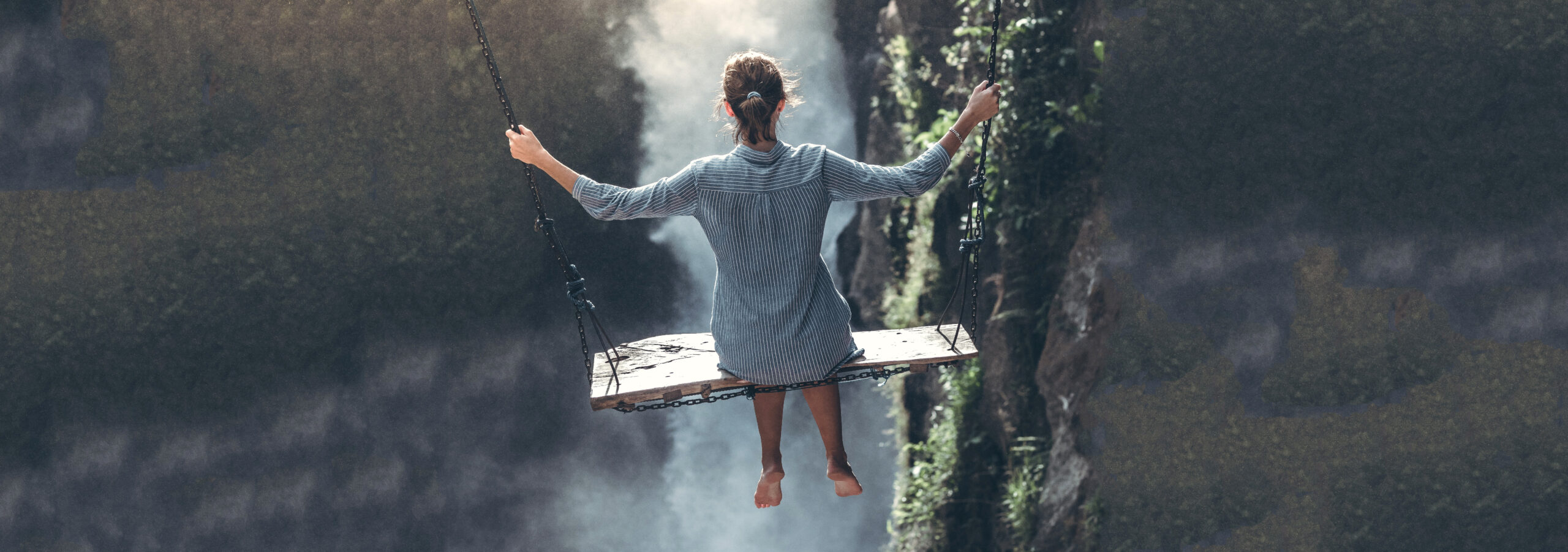


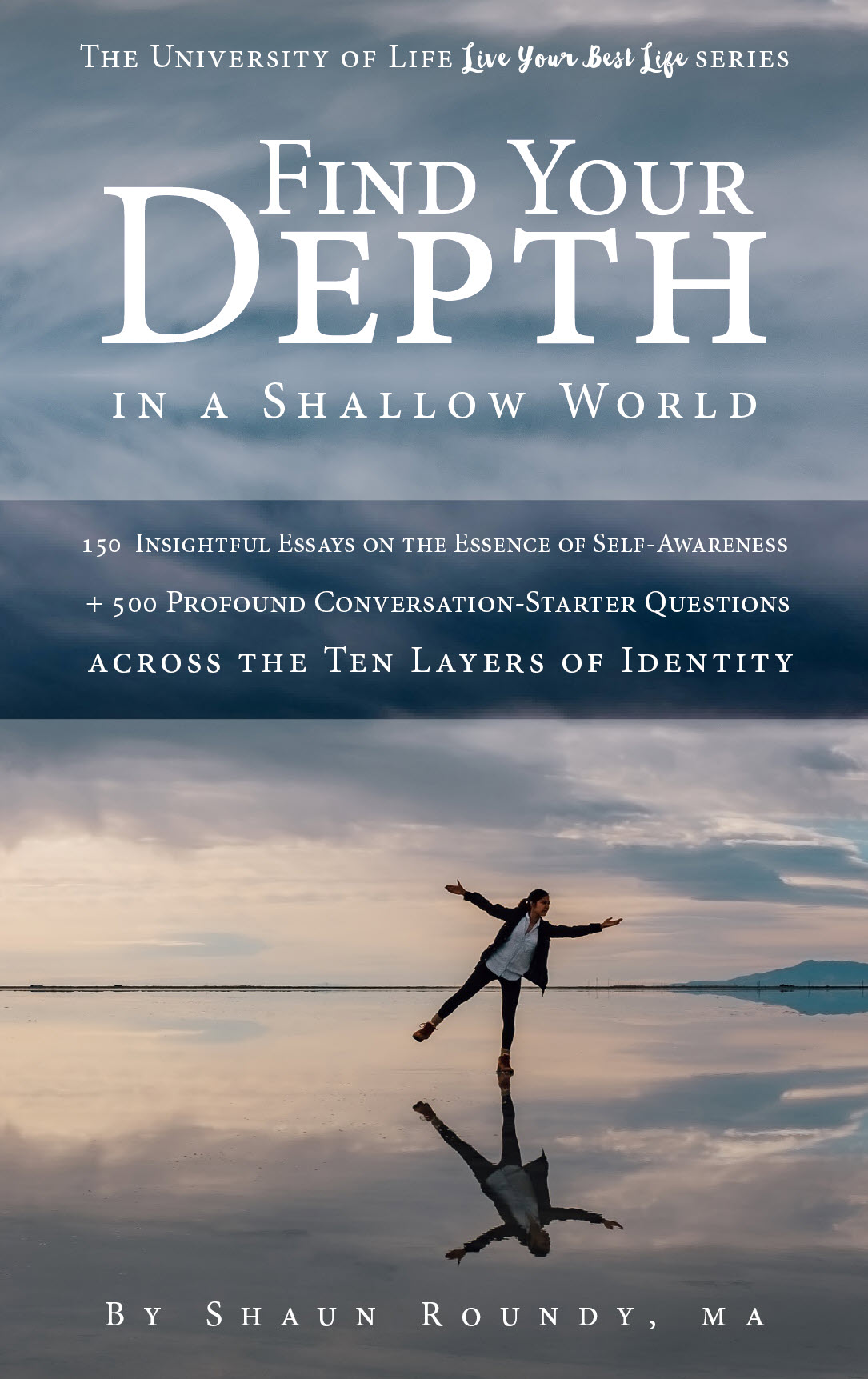
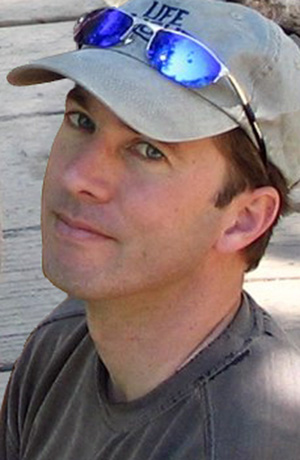
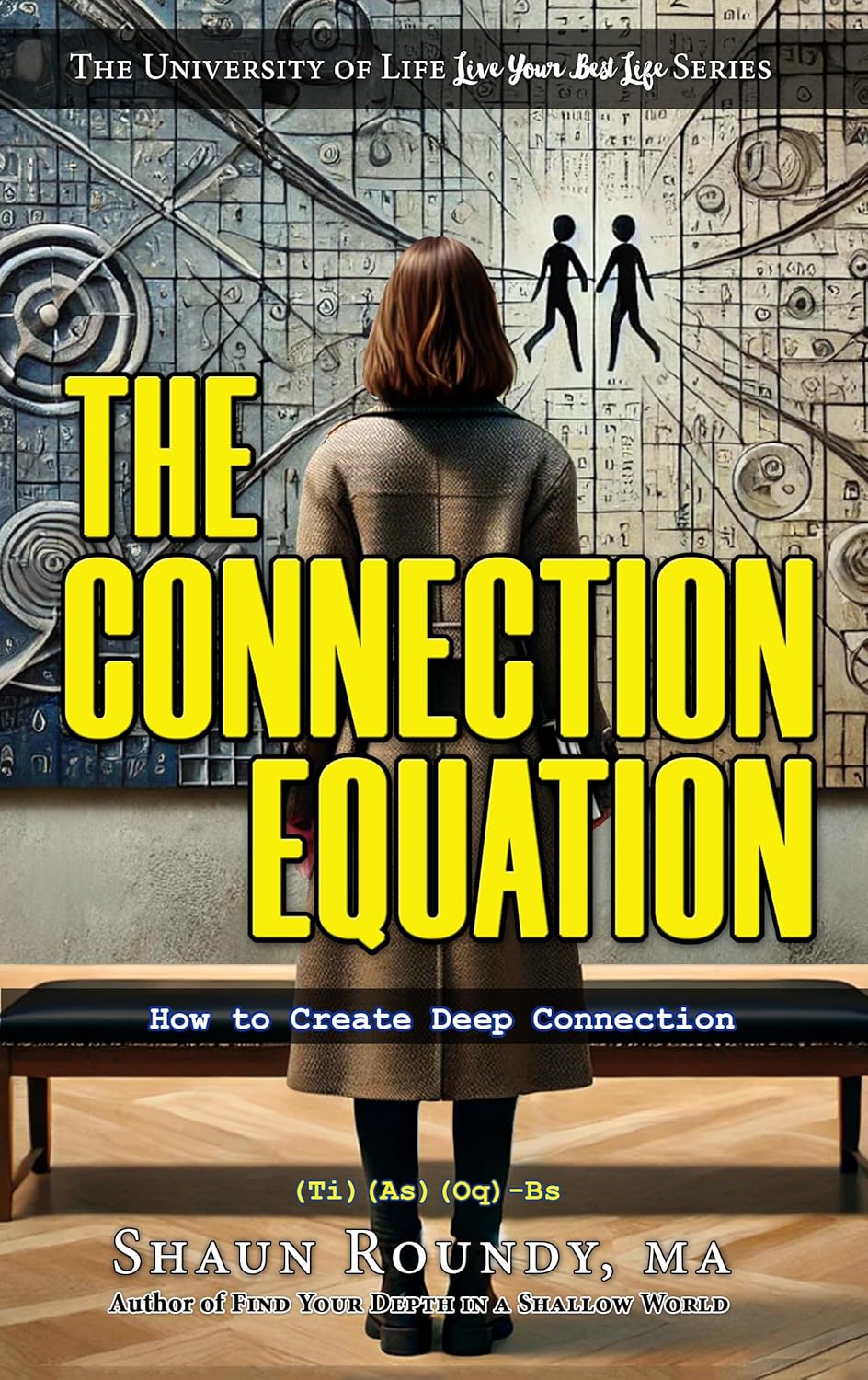

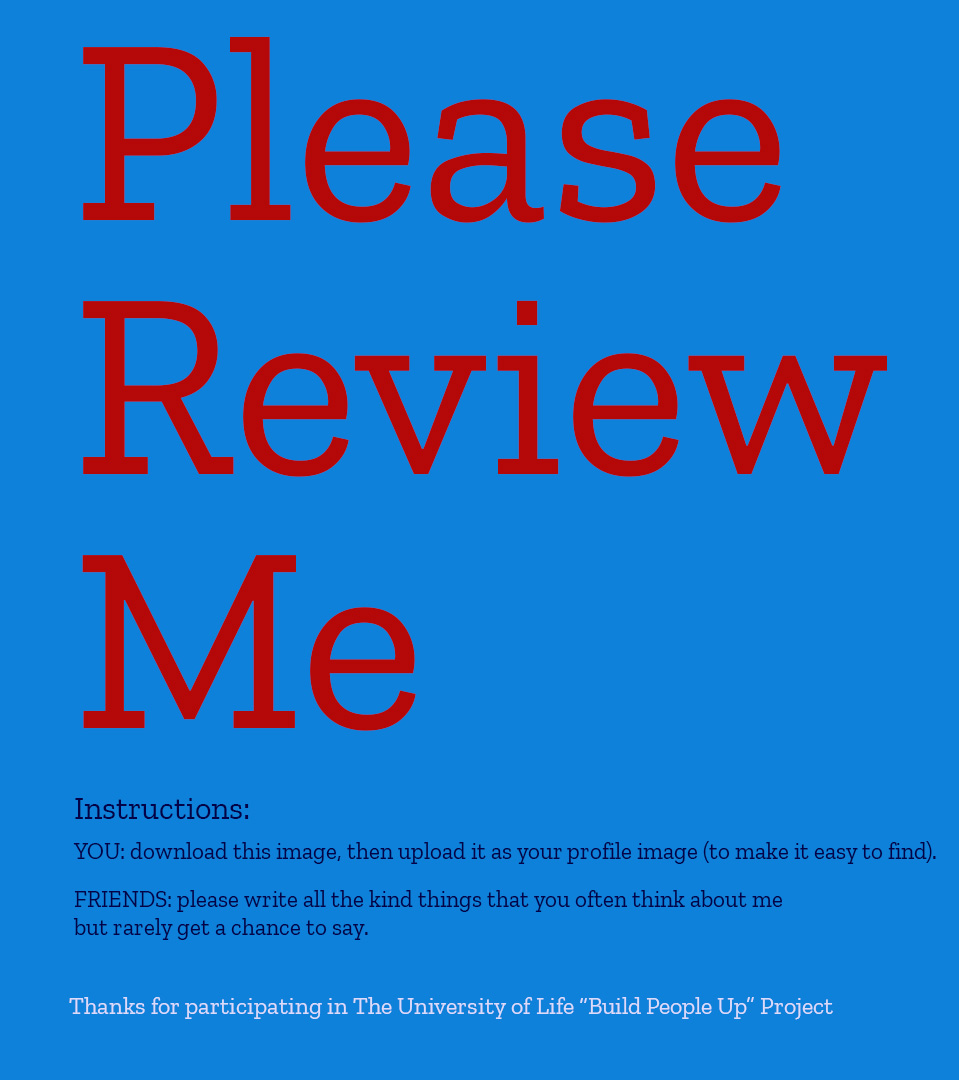

Leave a Reply